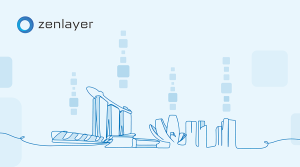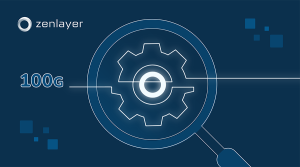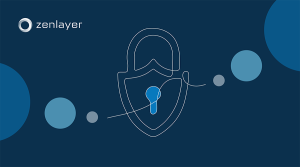The gaming industry is increasingly focusing on emerging markets, as user growth slows in developed areas. Eyes are presently on Southeast Asia, where more and more people are accessing mobile games over smartphones and high-speed internet connections.
The latest research from Newzoo indicates the greater Asia Pacific game market is now worth approximately $88.2 billion. This is more than North America ($42.6 billion), Europe ($31.5 billion), and MEA ($6.3 billion) combined. Altogether, Asia-Pacific will account for about 50% of total global game revenue in 2021.
Southeast Asia in particular is on pace to exceed $8.3 billion by 2023, according to ResearchAndMarkets — making it one of the most enticing areas for gaming within Asia-Pacific. By that time, the region should have roughly 320 million gamers. The area also has more than half a billion smartphone users, and about 40% play mobile games. Further, there is surging demand for multiple types of services including digital tournaments, esports competitions, and live streaming.
Global gaming companies have a golden opportunity to capitalize on regional demand and win customers. However, success won’t come easy. Southeast Asia is a very difficult market to penetrate. Keep reading to learn the top issues that gaming providers now face in this emerging market, and why connectivity is critical for success.
Key Challenges for Gaming Companies in Southeast Asia
Competition for wallet share is fierce in Southeast Asia. To remain relevant, gaming companies need to create content that’s fun, challenging, and attractive to local consumers. Take a look at the top mobile games in Southeast Asia right now, and you’ll see a mix of titles such as the lighthearted fighting game Sausage Man, combat games like League of Legends, and adventure games like Genshin Impact.
Yet, creating engaging and enjoyable content is only half the battle. It’s equally important to have a strong digital foundation in place to support games and provide positive experiences — and this is where many companies are falling short. To illustrate, consider a popular mobile game like Clash of Clans. This is a fast-moving, collaborative online multiplayer game. Issues like buffering can bring a game like Clash of Clans to a halt, making it difficult to complete tasks. Without seamless connectivity, the game is virtually impossible to play. At the same time, buffering and connectivity dropouts can make it difficult for users to tune in and watch games over streaming platforms.
These types of performance issues are common in Southeast Asia due to the region’s underdeveloped connectivity landscape. While connectivity is improving in Southeast Asia, many areas still lack robust supporting infrastructure. The area also suffers from insufficient peering across local ISPs, and poor last-mile connectivity. While companies often try to streamline deployments through the public cloud like AWS and Azure, many large urban hubs are still largely underserved. Deploying through the public cloud doesn’t always guarantee strong connectivity.
Solution: the Next-generation API-driven Global Accelerator
Gaming companies can significantly boost performance by deploying applications locally at the edge of the network, closer to user hubs throughout Southeast Asia. By taking this approach, it’s possible to reduce long-haul data transfers and eliminate issues like jitter, latency, and packet loss.
If not enough resources are available to deploy your own infrastructure, it’s now fast and easy to accelerate applications in Southeast Asia with Zenlayer Global Accelerator (ZGA), Zenlayer’s new PaaS-based network acceleration service. Gaming providers can use ZGA to make deeper inroads into emerging markets without having to undergo costly builds.
ZGA offers intelligent, API-driven network acceleration. The service runs over Zenlayer’s vast global network backbone, providing sub-25 ms last-mile connectivity. The platform contains an enhanced Linux Kernel and supports a range of protocols from layer 4 to layer 7.
Zenlayer’s network spans six continents, offering high-speed connectivity to global destinations throughout emerging markets. The network features over 180 global edge points of presence (PoPs), offering 25 Tbps of bandwidth capacity. Zenlayer maintains extensive relationships with local and global telecom operators and guarantees efficient transmissions from any location across more than 230 private lines.
Several gaming companies are now actively using ZGA to enhance their operations and provide stronger end-user experiences. For example, Lilith is a leading game developer offering popular titles like Farlight 84, Rise of Kingdoms, and Warpath. The company has a global customer base spread across several different regions. Lilith needed to improve service speed and quality, and so the company turned to ZGA. To help, Zenlayer established multiple ZGA acceleration channels between Lilith’s origin cities and user hubs and deployed custom core TOA modules. As a result, Lilith can now provide flawless gaming experiences to its overseas customers, free of service interruptions. Lilith’s service is noticeably better since deploying ZGA.
Boost Your Gaming Experiences with ZGA
If your company is looking to expand its presence in Southeast Asia, you need the support of a global connectivity enabler like Zenlayer. By using ZGA, your company can lower connectivity costs and boost performance — making it easier to generate better reviews and stronger profits.
ZGA is especially useful if you lack the resources to deploy your own infrastructure in Southeast Asia. Instead of constructing your own network, you can leverage Zenlayer’s existing infrastructure and obtain instant connectivity into target destinations.
Watch the video to learn more about how ZGA improves gaming performance in emerging markets! Set up a 30-minute ZGA consultation, and access one free month of service in addition to a $100 Amazon gift card. This offer runs through October 1, 2021. To access more information about ZGA, check out the ZGA product page. To spin up free trial for instant acceleration, sign up for ZGA here.







